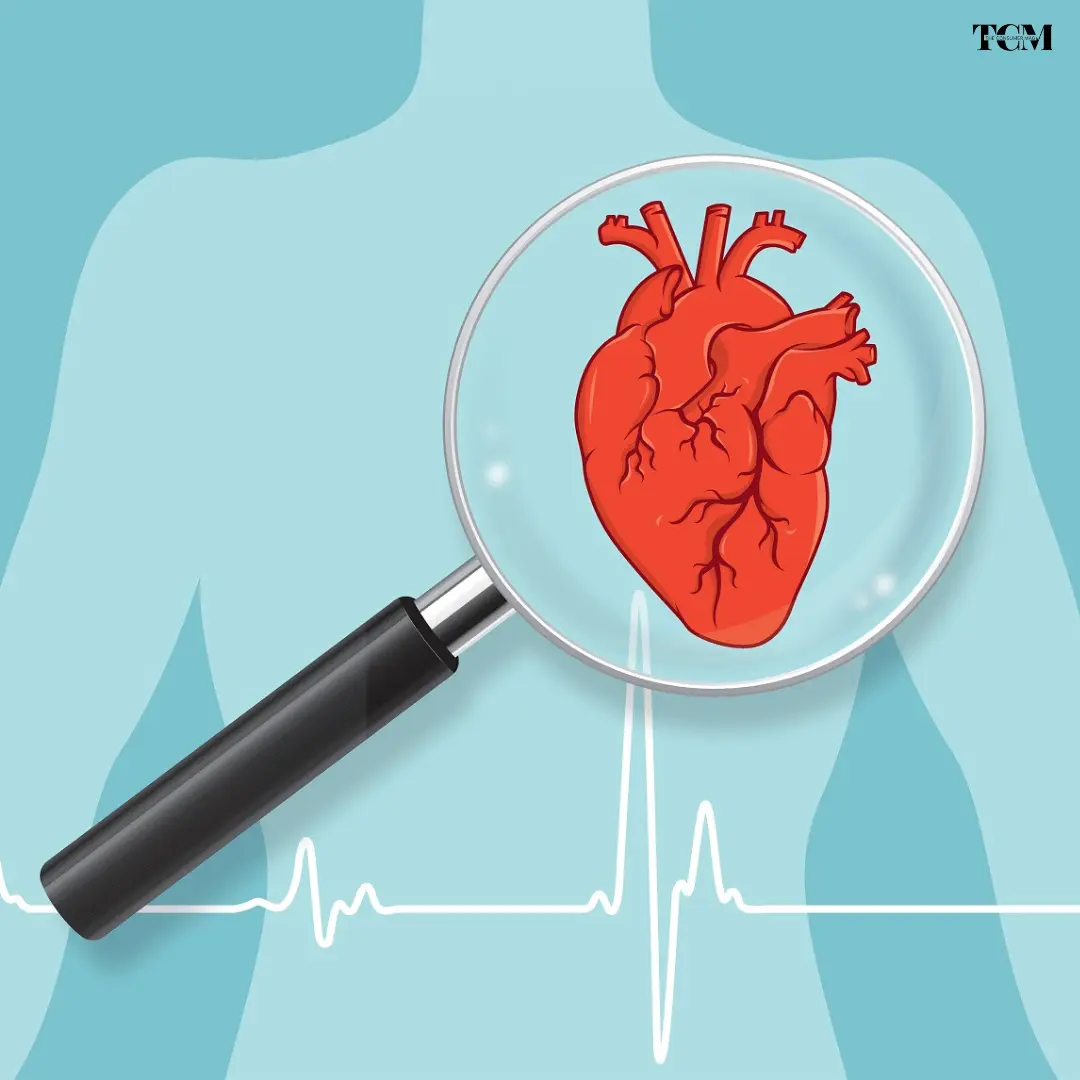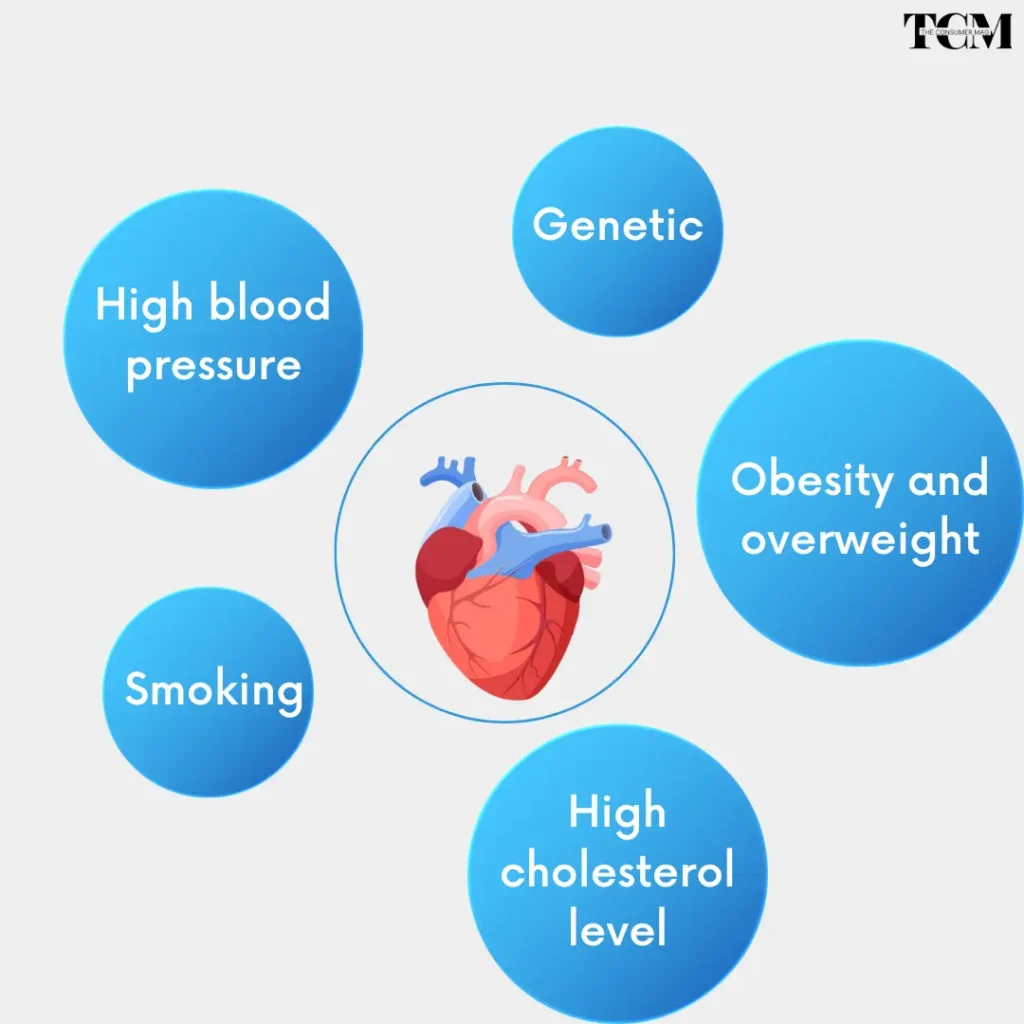Advertising Disclosure
Introduction

We live in an era where staying healthy with a busy schedule becomes challenging.
Often we compromise on our workout schedules, diets, sleep schedules, and several other things that might seem small but matter to our bodies.
We are all aware that our body is made up of different organs and systems that work together to run the human body.
But the most important ones are the neural and cardiac systems. They work as control units for our bodies.
So to keep our body in a healthy position, one must make sure that the heart and brain are in a healthy position.
Now, due to severe carelessness in our diets and workout schedules, we often hear that different risks of heart disease can lead to heart failure in patients. That’s where it becomes important for us to understand how to take care of our cardiac health as well as maintain a heart-healthy diet.
In this blog, we will be talking about some of the basics of how to reduce the risk of heart disease, what the different types of heart diseases are, and how we can maintain a healthy diet regarding this. So let’s dive into the blog.
What is heart disease?

Before diving deep into the topic, we must understand what heart disease is, how you can identify it, and what could be the possible reason for it.
Heart disease is also known as cardiovascular disease, and it is often caused by several factors that affect the workings of our heart and the circulatory system it maintains. Most of the time, heart disease could be genetic, and many of the times, it could be due to the unhealthy lifestyle that we lead.
We normally feel difficulty breathing due to an unhealthy hair environment, and we take it casually without paying much attention to it. But this could be the first sign that your heart is struggling to work in its best way. And that’s why you should visit a good cardiologist for a regular check-up.
What are the types of heart disease?
We are talking about heart disease and how to reduce the risk of it. Heart diseases can be classified into different categories, but seven of them can be majorly classified. Below, we will be talking about those and understanding what the early symptoms are and what the root causes of heart disease are.

Types of Heart Disease
- Coronary artery disease (CAD): This is one of the most common heart diseases that is seen among heart patients. In this case, the major artery, which is the coronary artery, gets blocked due to fat deposits, which affect the oxygen supply of our body as the coronary artery is responsible for it.
- Arrhythmias: A heartbeat works on certain electrical rhythms that are caused by nerve fibers that are present on the outermost layer of our heart. Any disturbance in these electric rhythms can cause arrhythmias, where the heart starts beating either too fast or too slowly.
- Heart failure: This condition occurs when our heart is not able to pump enough blood to meet body requirements. The early symptoms of heart failure can be difficulty breathing, swelling in the ankle, and water retention throughout the body.
- Cardiomyopathy: This condition occurs when heart muscles enlarge in size and thicken in width, which ultimately affects the pumping ability of our heart and our body’s ability to provide accurate oxygenated blood for our organs.
- Congenital Heart Disease: This is mainly seen at the time of birth when your heart is not perfect in both its structure and function.
- Valvular Heart Disease: Our heart has tricuspid and bicuspid valves present inside it to maintain the flow of blood circulation. Disturbances in the working of those valves can lead to valvular heart disease. The early symptoms can be difficulty breathing, chest pain, and fluid retention in the body.
- Pericarditis Heart Disease: This is characterized by inflammation of the pericardium (the sac surrounding the heart), and can cause chest pain and discomfort. Treatment often focuses on addressing the underlying cause and managing symptoms to promote heart health.
What are the risk factors for heart disease?
Several risk factors need to be kept in mind while talking about heart disease. It can lead to one of the most life-threatening moments if not taken care of properly.
Below, we will discuss some of the major factors affecting heart disease.

- Diabetes: Uncontrolled diabetes can damage blood vessels and increase the risk of heart disease.
- High blood pressure: This is one of the most common reasons why arteries are under pressure and heart failure occurs.
- High cholesterol level: High cholesterol levels can cause blockage in arteries and plaque formation in the coronary artery, which is responsible for oxygen supply into the body. Any disturbance in this process can lead to several problems in our bodies.
- Smoking: We take smoking casually, but this is one of the most common reasons for several heart diseases. It damages the blood vessels, and due to this, there is a reduction in oxygen supply, which can lead to high blood pressure. It also forms a blood clot that blocks the arteries and can lead to certain heart diseases.
- Obesity and overweight: Excess weight in the body puts pressure on the arteries, which leads to high blood pressure, which ultimately can lead to several diseases.
- Genetic: Sometimes family history also plays a very important role in heart diseases. Any close member, such as your parents or siblings, with heart disease increases the risk of disease in your body due to the genetic environment that has been formed during fertilization.
Early Signs of Heart Disease
The early symptoms of heart disease could be pretty normal, which most of us casually ignore. The symptoms may be pain in your chest area, swelling in your legs, especially near your ankles, and pain in your shoulder, jawline, and back.
In some cases, you may have difficulty breathing, and this could be due to an insufficient oxygen supply inside your body. We often ignore these symptoms, and due to this, we have to face measures that could be cured at early stages.
If you feel any of these, try to visit a cardiologist, get all the tests done, and find the root cause of the problem rather than ignoring it.
What is the best diet for heart disease reversal?

Several diets have had different effects on our bodies. While choosing a diet for heart disease reversal, one must keep in mind the cause of their disease and what kind of nutrients they are getting from the diet. Below, we will be talking about a few diets that are beneficial for heart disease reversal.
Mediterranean Diet: This diet mainly focuses on vegetables, fruits, whole grains, nuts, seeds, and healthy fats. It also has moderate amounts of meat and fish, which are good for our cardiovascular health.
DASH Diet: This diet is designed to prevent hypertension and lower your blood pressure levels, as high blood pressure is the root cause of several heart diseases. It mainly focuses on fruits, vegetables, low-fat dairy products, grains, and small amounts of proteins.
Low-Sodium Diet: Limiting sodium intake plays a very important role and controls your blood pressure levels. In this diet, it is recommended to avoid all packaged and processed foods as they are high in sodium, which is responsible for high blood pressure levels. Mostly homemade food is recommended in this diet.
Apart from this, one also needs to take care of alcohol consumption as well as smoking, as these two are two of the main reasons why blood vessels are diminished and, due to this, insufficient blood and oxygen supply takes place in the body.
What is atherosclerosis, a heart disease?
Atherosclerosis is a condition in which plaque builds up in the arteries. This is the main reason why coronary artery disease occurs. The arteries start to be damaged from the inside due to factors like high blood pressure, smoking, a high cholesterol level, and diabetes.
As time passes, the plaque that has been formed inside the arteries hardens and narrows them, which affects the blood supply in the heart muscle. If the blood flow is completely blocked, then there is blood clot formation in the artery, which can lead to a heart attack.
The early symptoms can be pain in the chest area and upper shoulder region. You can also see swelling in your ankles and knees. In case you feel any of these difficulties, consult a cardiologist without delay.
How do I prevent heart disease?
To prevent heart disease, one must make sure that they are living a healthy lifestyle, which includes healthy food habits, good workout sessions, and less processed food as well as alcohol consumption.
Having a good and balanced diet is one of the key ways to prevent several heart diseases. Try to include fruits, vegetables, and a good amount of Omega-3 fatty acids in your diet, as they all help lower high cholesterol levels.
Apart from having a healthy diet, it is also essential to keep your body active and engaged in several physical activities, which help the heart circulate blood throughout the body. Make sure that you do at least 75 minutes of workouts in a day, which can include intense cardio sessions.
If we talk about other factors like alcohol and smoking, then we should keep a check on this, as these are responsible for damaging the blood vessels, which ultimately reduces the oxygen supply of the body.
Conclusion
In the end, I would say that a healthy lifestyle is very important for our survival because if your body is not healthy, you will not be able to work or even enjoy the moments of life.
People often think that heart disease is the result of measured drawbacks in our lifestyle, but they also think that hard diseases are the result of some of the small negligences that we do in our diet, lifestyle, and sleep cycle on a day-to-day basis.
